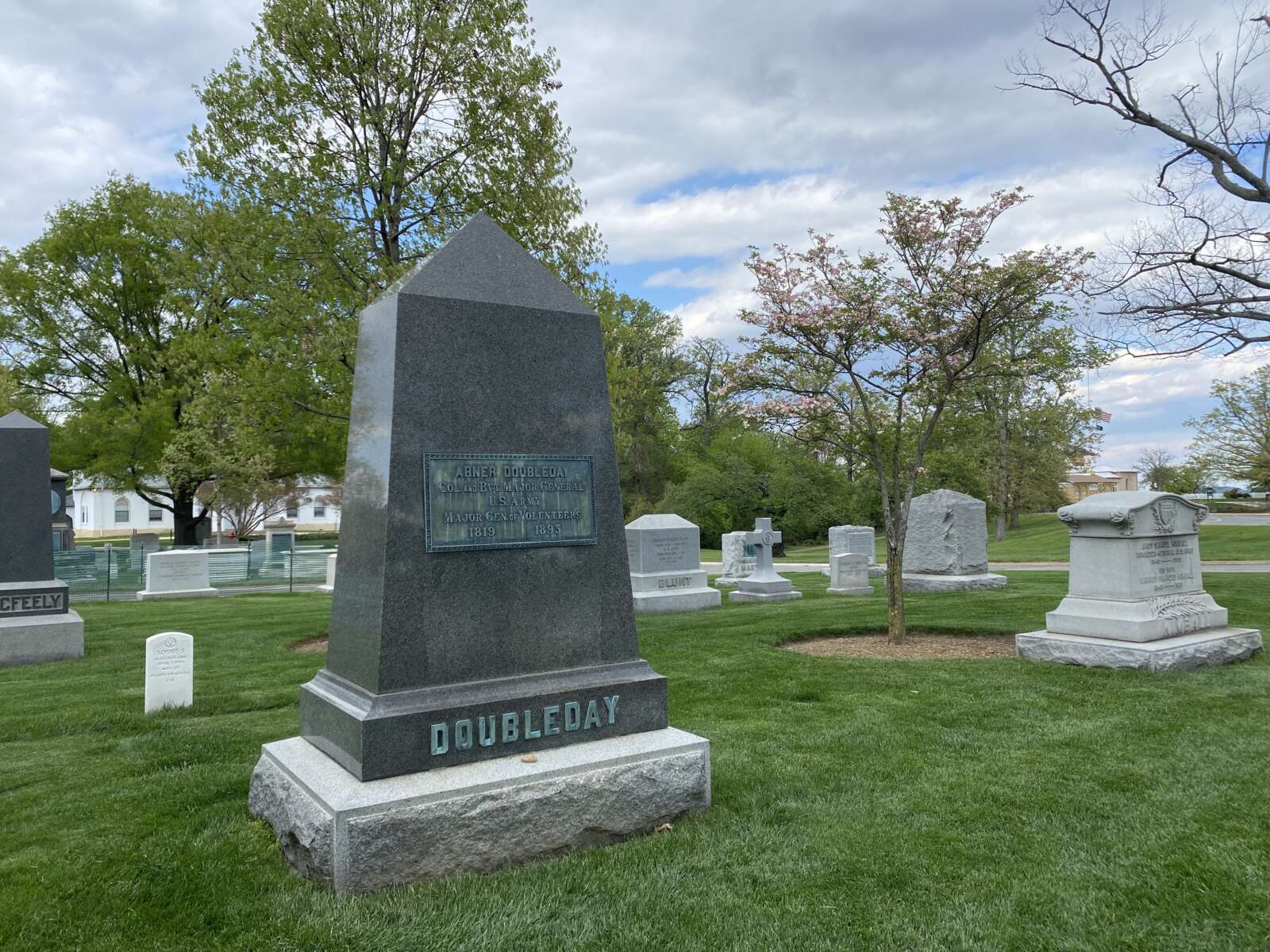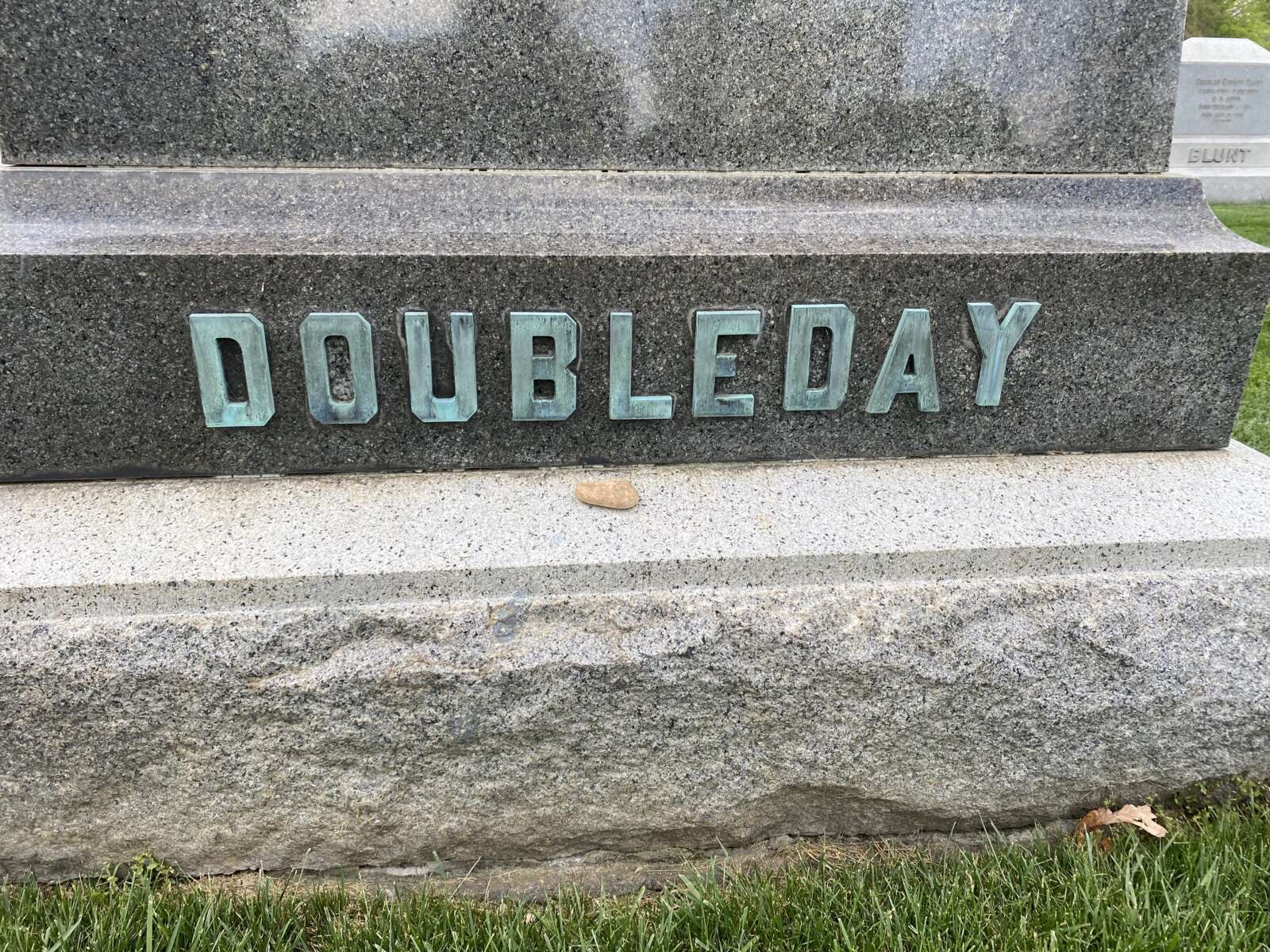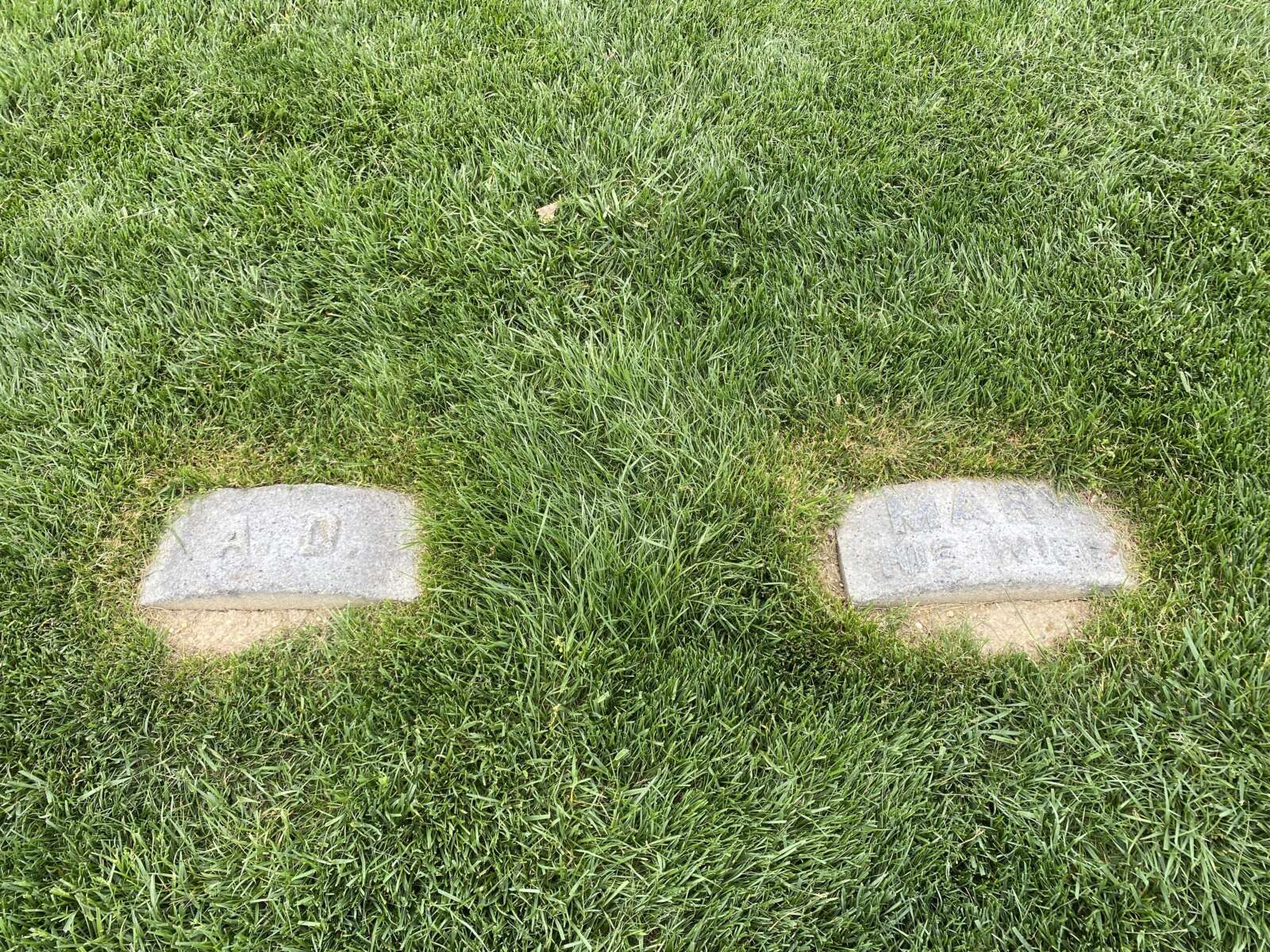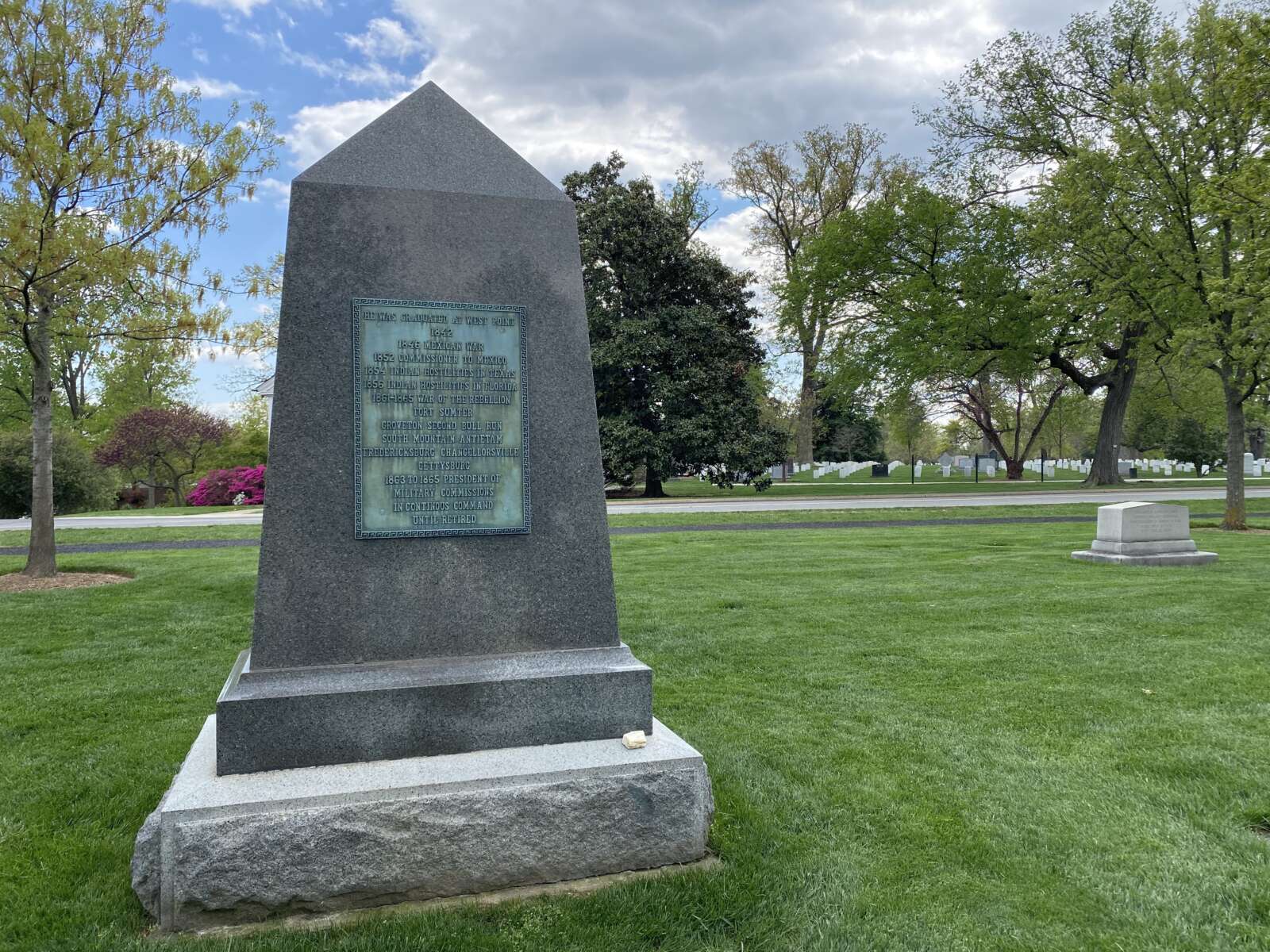Up the hill from John F. Kennedy’s grave and behind Arlington House on the western side of Arlington National Cemetery lies the purported inventor of America’s pastime.
The former Union Army General Abner Doubleday is interred in section 1, laid to permanent rest there nearly 130 years ago. He’s one of more than a hundred Union generals that are buried at Arlington National Cemetery. While it’s his accomplishments during the Civil War that led him here, history remembers Doubleday much more for his perceived contributions to the game of baseball.
“I’m a big baseball fan. When I was growing up in the 1960s, the common view among the public was that this guy named Doubleday invented it,” says George Dodge, former Arlington Historical Society president and author of a book about the history of Arlington National Cemetery. “But that’s largely been completely discredited.”
Doubleday, a New York native, had a lifetime full of military experience. He was an officer in the Mexican War, fought in the Seminole War, and actually commended the gunners that fired the Civil War’s first shots at Fort Sumter. During the Civil War, he also saw action at Antietam, Fredericksburg, Bull Run, and Gettysburg.
This feature was supported by the ARLnow Press Club. Join to get the exclusive Early Morning Notes email and to help us tell stories like this. Click here to get a free trial (offer expires 5/31/22).
It was at Gettysburg where Doubleday was given command of the corps, when another general was killed in action, that helped to secure high ground. This ultimately led to the Union’s victory at the famed battle and likely turned the tide of the war.
“He has to be given some credit for that and I don’t think he does,” says Dodge.
After the war, he worked to help formerly enslaved people transition to a life of freedom, secure patents for San Francisco’s cable car system, and led a religious group devoted to spiritualism. Doubleday died in 1893 in New Jersey.
But before all of that, he apparently — according to legend — invented baseball.
The story goes that, while living in Cooperstown, New York, in 1839, a 20-year-old Doubleday drew a diamond in the dust and declared this was for a new game he called “base ball.” Along with a 1871 request for baseball-like equipment, this was enough proof for some that Doubleday invented baseball.
And, for the better part of the 20th century, this narrative existed — and, to some extent, still to this day.
Over the last several decades, however, historians have proven that Doubleday likely didn’t invent baseball.
The tale of him drawing a diamond in the dust was only first recounted via letter in 1905, more than 60 years after the fact, to the Mills Commission, a group that had been tasked to determine the origins of the great American game of baseball.
The letter was written by a man named Abner Graves who claimed he was there that day, but Graves would have only been 5 years old at the time. Additionally, it was unlikely that Doubleday was even in Cooperstown at the time. He was a cadet at West Point in 1839 and, even if he had returned home to see family, his family had moved to another village.
“They were looking for even the flimsiest of proof that [baseball] originated here in the United States,” says Dodge.
The more likely reason that this myth exists is that Doubleday represented a home run candidate — a respected Union Army general buried at Arlington National Cemetery.
There’s very little real evidence that Doubleday had really anything to do with baseball, in fact. He left numerous written records of his life — none of which mentioned a game called baseball.
What’s more, Doubleday never knew that he was even given this distinction. He had been dead and buried in Arlington for more than a decade.
“Whether he wanted that myth to be on as part of his legacy or not, he wasn’t even around to say no to it or to accept it,” says Dodge.
The truth is baseball was probably derived from the English game of “Rounders” and built upon by others in America, including enslaved people who played a version of the game in the mid-19th century.
Nonetheless, Abner Doubleday’s grave at Arlington National Cemetery remains a spot for some baseball fans to pay their respects. When ARLnow went to the cemetery, an employee said that they frequently get requests about the location of his grave.
While the Doubleday myth has remained part of baseball’s lore, it isn’t the truth.
Says Dodge, “He should be more known for his activities as a Union officer of high command than any connection to baseball.”





